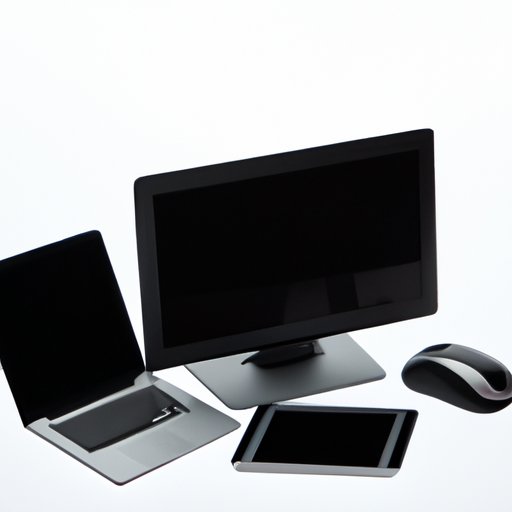Introduction
A computer is an electronic device that processes data to produce information. It has the ability to store, retrieve, and process data in a variety of ways. Computers are used in a wide range of activities from simple calculations to complex tasks such as playing video games or creating art. They have become an integral part of modern life, and their uses are continually expanding.
At its most basic level, a computer consists of four components: input devices, output devices, memory, and a processor. Input devices, such as a keyboard or mouse, allow users to interact with the computer by sending signals to the processor. Output devices, such as a monitor or printer, display the results of the processor’s work. Memory stores instructions and data for the processor to use. The processor interprets and executes the instructions stored in memory.
Benefits of Owning a Computer
Owning a computer can be beneficial in many ways. Computers can help people stay connected with friends and family through email, instant messaging, and social media. They can also be used to research topics, find information, and watch videos. Computers are also great tools for students, allowing them to take notes, access online resources, and write papers.
Computers are also useful for businesses. Businesses can use computers to manage their finances, create presentations, and communicate with customers. Computers can also streamline processes, such as inventory management, customer relationship management, and data analysis.
Types of Computers
There are several different types of computers available today. Desktop computers are larger than other types of computers and typically remain stationary. They are designed to be used at a desk and come with a variety of features and capabilities. Laptop computers are portable devices that are designed to be used on the go. They are smaller than desktop computers and usually have fewer features.
Tablet computers are even smaller and lighter than laptops. They are designed to be used as a portable device and typically have touchscreens. Tablet computers are becoming increasingly popular due to their portability and convenience.
History of Computers
The history of computers dates back thousands of years. Early computing devices included abacuses, which were used to calculate numbers, and astrolabes, which were used to measure the positions of stars. In the 19th century, Charles Babbage developed the first mechanical computer, which was called the Difference Engine.
In the 20th century, computers evolved rapidly. Vacuum tubes were replaced by transistors, which enabled computers to become smaller and more powerful. Computers started to be used for commercial applications, such as accounting and payroll. The invention of the microprocessor in 1971 revolutionized computing, making it possible to produce personal computers.

Impact of Computers on Society
Computers have had a profound impact on society. In education, computers have made it easier for students to access information and learn new skills. Computers have also changed the way businesses operate, allowing them to track customer data, automate processes, and increase efficiency.
Computers have also had a major impact on everyday life. People can use computers to shop, bank, and communicate with others. Computers have also enabled people to access entertainment such as movies, music, and video games. In addition, computers have made it easier for people to access information about almost any subject.
Future of Computing Technology
The future of computing technology looks bright. Predictions for the next decade include faster processing speeds, improved artificial intelligence, and greater storage capacity. Emerging technologies such as quantum computing, blockchain, and augmented reality will also continue to advance computing.
The continued development of computing technology will have a positive impact on society. Computers will become even more powerful and capable, enabling people to solve more complex problems and accomplish more in less time. The possibilities are endless, and the future of computing looks brighter than ever.
Conclusion
Computers have become an integral part of modern life, and their uses are continually expanding. They provide numerous benefits, such as helping people stay connected and providing businesses with a competitive edge. There are several different types of computers, each with its own advantages. The history of computing technology has been marked by rapid advancement, and the future looks even brighter. As computing technology continues to evolve, it will have a profound impact on society.


